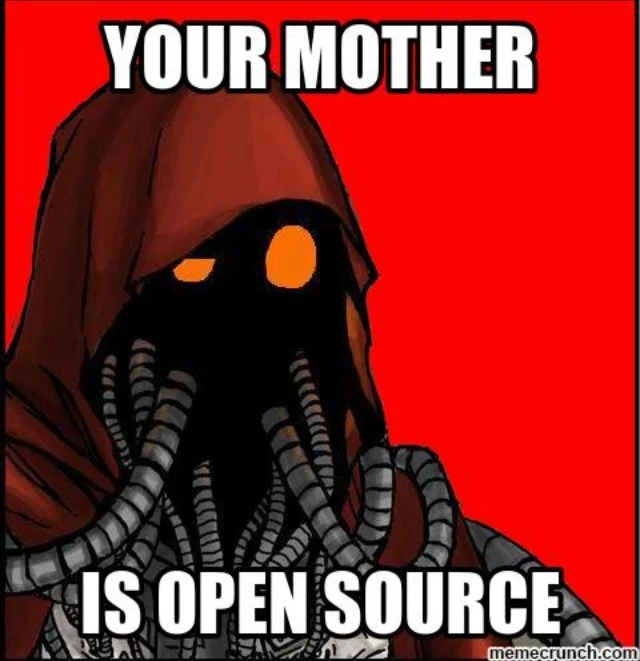I realized my VLC was broke some point in the week after updating Arch. I spend time troubleshooting then find a forum post with replies from an Arch moderator saying they knew it would happen and it’s my fault for not wanting to read through pages of changelogs. Another mod post says they won’t announce that on the RSS feed either. I thought I was doing good by following the RSS but I guess that’s not enough.
I’ve been happily using Arch for 5 years but after reading those posts I’ve decided to look for a different distro. Does anyone have recommendations for the closest I can get to Arch but with a different attitude around updating?
Based on what you describe, I would strongly recommend going with OpenSUSE Tumbleweed. It’s just as bleeding-edge as Arch, but all packages go through automatic testing to ensure they won’t break anything, and if some manual actions are required, it will offer options right before update. Moreover, snapper in enabled by default on btrfs partitions, and it makes snapshots automatically before updates, so even if something breaks somehow, reverting takes a few seconds.
One small footnote is that you’ll need to add separate VLC repo or Packman for VLC to have full functionality - proprietary codecs are one of the rare things official repos don’t feature for legal reasons.
On Arch rant: I’ve always been weirded out by this “Arch is actually stable, you just have to watch every news post for manual interventions before every update, oh, and you better update very often” attitude.
Like, no, this is not called stable or even usable for general audience. Updating your system and praying for it not to break while studying everything you need to know is antithetical to stability and makes for an awful daily driver.
I upvoted you, I am a fellow openSUSE fan and contributor.
But I need to point out that if you install VLC from a repository outside of Factory, then it’s not auto-tested.
Moreover, Packman is external to the openSUSE project altogether. If you use it, you are supposed to “just trust” that everything will be fine.
You are better off installing VLC through Flatpak.
Fair point! Honestly, that’s exactly what I ultimately went for, I just know there are people around who strongly prefer native packages.
Flatpak contains all codecs etc., and works flawlessly.
I’m running Arch for a very long time. I agree this is not a distro for general audience. I disagree, however, that it is not stable. When I’m doing work I don’t update my system. I enjoy my stable configuration and when I have time, I do update, I curiously watch which amazing foss software had an update. And I try them. I check my new firefox. I check gimp’s new features. etc… or if I have to do something I easily fix it, like in no time because I know my OS. Then I enjoy my stable system again.
Do you want to know what’s unstable? When I had my new AMD GPU that I built my own kernel for, because the driver wasn’t in mainline. And it randomly crashed the system. That’s unstable.
Or when I installed my 3rd DE in ubuntu and apt couldn’t deal with it, it somehow removed X.org. And I couldn’t fix it. That’s also something I don’t want. Arch updates are much better than this.
Guess we simply apply different meaning to the word “stable”. (you do you, though, and if it’s alright with your workflow, yay!)
To me, stable means reliably working without any special maintenance. Arch requires you to update once in a while (otherwise your next update might get borked), and when you update, you may have to resolve conflicts and do manual interventions.
Right now, I run OpenSUSE Slowroll (beta, not released yet) on one of my machines and EndeavourOS on the other. The former recently had to update 1460 elements, and one intervention was required - package manager asked me if I want to hold one package for a while to avoid potential dependency issues. Later, it was fixed, and otherwise it went without a hitch. This is the worst behavior I’ve seen on this distribution, and so to me it renders “acceptably unstable”.
you just have to watch every news post for manual interventions before every update, oh, and you better update very often
You have to watch the factory mailing list and make any manual interventions for Tumbleweed, and frankly, you should be watching the news and taking any action required no matter the os.
A decent daily driver distro for regular user should not break on blind update - at most, it should warn the user automatically before applying updates. If user is expected to check news every time they want to update their system - it is not a good fit for anyone but enthusiasts.
Where did you get the idea that Arch is a daily driver for regular user? The very distro that tells in big letters: stuff can break, you better watch out on updates? The very distro that has command-line install process with chroot-like commands as official one?
Plenty of people seriously propose it as such.
It is not - at least if you’re not an enthusiast happy to tinker with your system all the time.
Yup, it really is not. Those plenty of people are doing a big disservice to others with such proposing. I am sad to hear it
There are distros based on Arch that are proclaimed to be user friendly and ready for general desktop/gaming use. Plus plenty of people online tell others to use Arch as a daily driver.
Regardless I don’t think an update should happen if it’s going to break something, unless you manually over ride the warnings it should be showing.
Anyone who is not curious enough to type
yay -Pwbefore typingyayshould probably stick with something like Windows. And even then, you should watch out for the rare manual intervention.Edit: Tone.
OpenSUSE TUMBLEWEED, always updating, but they have an OpenQA tool that checks the builds for success, and if for some reason something did go bad you just reboot and pick the previous (automatic) snapshot. Lots of GUI tools to manage the system and packages via the various Yast2-GUI apps.
+1 for Tumbleweed. It’s a rolling release distro without (most of) the hassle and YaST is a fantastic utility which you can use to do many things. Nice graphical stuff to help you configure things like backup. Never had any breakages so far with Tumbleweed :)
Another +1 for Tumbleweed. It’s an simple setup, easy to roll back if needed, and has solid tools like Yast that help manage most aspects of your os.
Plus, their equivalent of the AUR, the open build system, can actually be used to build packages for any system.
I’ve been an Arch user for about 15 years now, and I’ve never posted to the forums. Not because I’m great at this and don’t break things. I constantly break things and need to fix them. I don’t ask questions there because before you’ll get any help you are going to get sat down and explained (in great detail sometimes) how you are the stupidest piece of shit on Earth.
I posted on the Arch forums ONCE. Didn’t get a single reply, lol. Actually had to open an issue on the upstream git repo to get any info.
Fedora, great blend of bleeding edge and stability. Plus Linus uses it, so what better praise could you get.
The same thing happened to me. The package was split into separate packages. Install the package vlc-plugins-all.
sudo pacman -S vlc-plugins-allProblem solved
Honestly NIXos. Run it impermanent or traditional OS style. If your coming from Arch and want less breakage and more declarative configuration. Immutable or not. Pick almost any DE and all you maintain is your nix config. Nix config is your master file its not huge and the machine runs from it as you tell it. The machine does the rest. No system drift, no cruft. Just works and if you break it. Select your previous generation at boot and your back exactly as you were before.
Arch is really for those who like to troubleshoot and actively maintain things when they break.
I’m pretty decent with linux and for the most part, I can fix arch when it breaks, but I don’t have the time for that. For that reason, I use Fedora and recommend mint.
I don’t understand this, I’ve been using arch for 3 years, I update every couple of days and I’ve never had anything break, is it an aur thing? I tend to stay away it
I did break my endevaourOS after I was unlucky enough to upgrade when grub got a huge non-bootable bug and probably there may have been some app bugs since which are minor tbh. Like currently I can’t run the bauh app, because it misses “bauh” in the python packages (lol).
Yup, OP has done his time in Arch meaning now competent, probably, time to go to Fedora and relax, close enough to the edge but not bleeding, good QA, For extra chill go atomic, check out uBlue…
I’d go for an atomic distro if it weren’t for the AUR. It’s too comfy.
I’ve been an Arch user for more than a decade and I’ll usually be first in line to defend it from dodgy claims about unreliability.
But that forum response is bizarre. Literally the last two RSS items right now are about how splitting packages will require intervention for some users (plasma and Linux firmware). VLC is an officially supported package, and surely this change would impact almost every VLC user?
New opt-depends is a nice pacman feature, but it hardly implies that things have been removed from the base package.
I had the same problem, i did start with arch ,but man i remember doing a update after 4 days(4Gb of new updates) and my system faild to boot. From that moment i went debian route.
I can totally understand that. In case you still want to give it a chance, I can highly recommend EndeavorOS. It’s basically pre-styled, pure Arch. But it has a welcome dialog, where you have a warning banner at the top if you need to be careful regarding an update. This directly links you to their Gitlab and forum with the steps you’d need to take to not break anything. This saved me multiple times already and I never broke my system, despite not even reading the Arch RSS feed or changelogs.
Besides the EndeavorOS forum is waaaay friendlier compared to the Arch one.
Void is Arch, but stable and without systemd.
If you know your way around Linux in general, that’s a good choice.
If you don’t want to get into the rabbit hole that is NixOS (which is a distro i also like), then i would say void linux, if you still want that arch minimalism. Void is a rolling release, but it’s more like a slow roll if that makes sense and focuses on stability. It’s package manager is also rock solid, fast, and can update even when the system hasn’t been updated in ages. If you’ve done a manual install of arch before, you’ll probably breeze through the install process as well, since it is a guided ncurses installer.
Maybe it’s me, but while you have outlined the events that got you to this point, I don’t understand either the ‘attitude’ you find problematic or what it is about Arch you would hope to find elsewhere. Hard to make a recommendation without those.
I prefer Debian-Testing. Basically, a rolling release, but not unstable. Arch is akin to Debian -Sid, which is unstable. The latest packages are brought in to -Sid after some rudimentary testing on -experimental. But only the stuff that make it and are solid on -sid, make it to -testing. Basically, Debian has 2 layers of siphoning bugs before they even make it to -testing. And that’s why the -stable branch is so solid, because whatever makes it there, has to go through the 3 branches.
So if you like rolling releases with much newer packages, consider -testing. The easiest way is to wait for the Trixie release, and then do the manual update to -testing by changing the repository names (there are online tutorials about it). The other way is to get a -testing iso, but these usually are broken because most people “upgrade” their installed distro to testing instead of just install it outright.
I’ve been using -testing for over a year now with 0 problems. Even Google is using -testing internally! I also have had Arch installed and endeavouros, and have had 3 problems that I had to fix in 5 months.
The other way is to get a -testing iso, but these usually are broken because most people “upgrade” their installed distro to testing instead of just install it outright.
I’ve installed Debian testing from ISO a handful of times and never had any issues.
https://en.wikipedia.org/wiki/Principle_of_least_astonishment
Someone should inform whoever made that change. If a package is split in a new release, the initial state should match the final as closely as possible, in this case by installing the new optional dependencies automatically. (Although I’m not sure why they’d want to split everything out like that anyway; no other VLC distribution does that, so splitting is itself a violation.)
Maybe Manjaro might be an alternative? I haven’t personally used it. I don’t like this kind of surprise, so I stick to boring distros like Debian. I used to use CentOS but it was too boring.
Manjaro is significantly worse with updates breaking.
I used for a little while in 2018 and again in 2019, both times ended because it once became stuck in a boot loop after updates, and another time couldn’t boot after updates.
Mate it’s been six years. Half a decade. Manjaro hasn’t exploded a single time in at least the last three and beyond that has had only minor issues related to their website in that time.
You have to be dense to be holding something that happened six years ago against a project.














